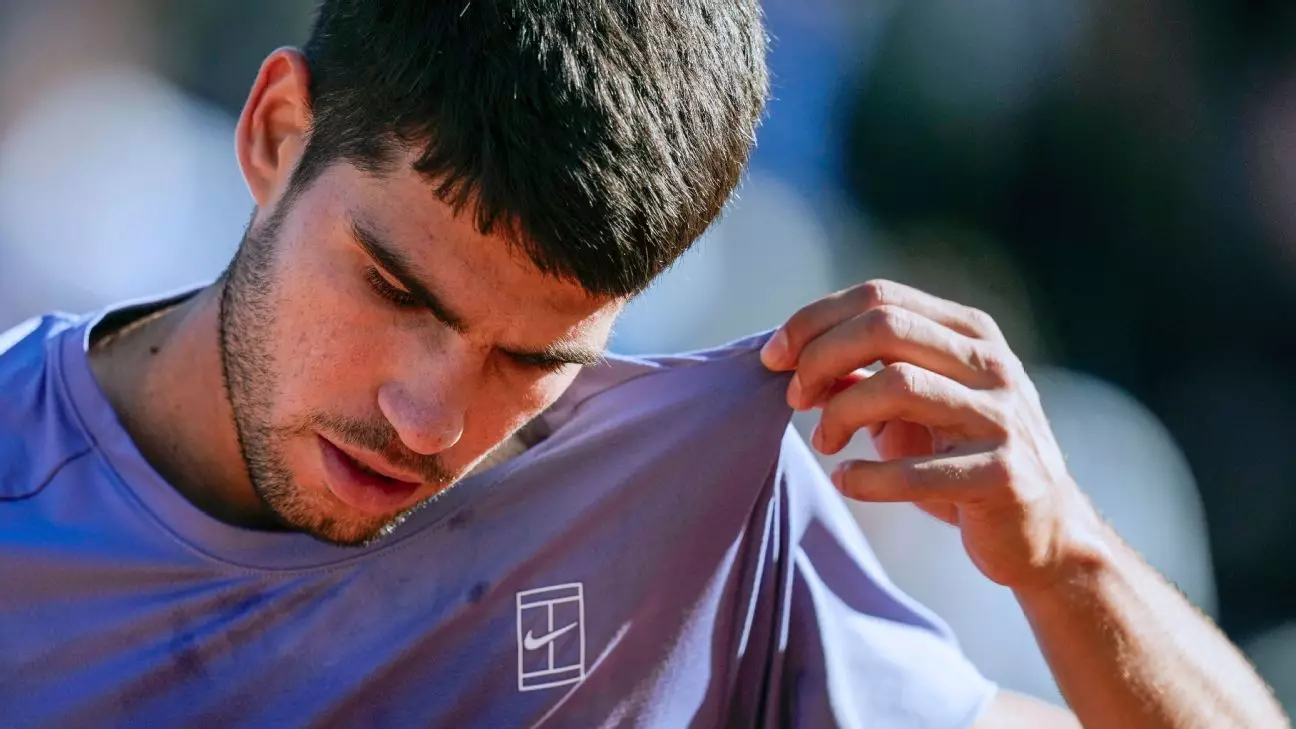Carlos Alcaraz’s recent decision to withdraw from the Madrid Open due to leg injuries raises important questions about the balance between physical readiness and competitive ambition in professional tennis. As a prominent figure who has captivated audiences with his electrifying gameplay and youthful energy, Alcaraz’s absence from this year’s event emphasizes the human aspect of sports, often overshadowed by the relentless demand for performance. Suffering from a lingering upper leg injury sustained during his recent encounter in the Barcelona Open final, combined with new concerns regarding his left leg, Alcaraz is demonstrating an important lesson in prioritizing long-term health over immediate gratification.
The Top Seed’s Dilemma
As a two-time champion of the Madrid Open, Alcaraz’s withdrawal stings not only for him but for fans and tournament organizers alike. Expected to compete as the second seed and enter a high-stakes battle against top rivals like Novak Djokovic, his absence leaves a void in the tournament and raises eyebrows about the rigid expectations placed on athletes at this level. Alcaraz himself vocalized his frustrations with the hectic schedule, expressing concerns about playing too many matches with insufficient recovery time. This scenario begs the question: should the ATP reconsider tournament scheduling to better accommodate player health? The ATP must recognize the broader implications of such oversights—not just for the players, but for the sport’s integrity and longevity.
Future of a Young Champion
Despite the setbacks, optimistic views remain about Alcaraz’s trajectory, particularly as he heads toward the French Open, where he is the defending champion. His previous victories in prominent tournaments, such as Monte Carlo and Rotterdam, showcase his remarkable talent and resilience. Alcaraz’s clinical approach to managing his injuries indicates a maturation process that could serve him well in navigating the pressures of professional tennis. As he stated, the current injuries should not impede his performance at Roland Garros next month. This forward-thinking mindset highlights his dedication not only to the sport but also to his physical well-being, a lesson that many young athletes would do well to emulate.
The Impact on Rankings and Rivalries
The ripple effects of Alcaraz’s withdrawal extend beyond his personal journey; the shifting landscape of ATP rankings is on the line. With Alcaraz currently ranked third, his exit opens the field for other players like Alexander Zverev, who recently advanced in the rankings after his success in Munich. The competition between Alcaraz and Zverev has already generated significant buzz and excitement among fans. As Alcaraz focuses on recovery, it will be fascinating to see how his rivals take advantage of the evolving landscape and how this impacts future tournaments.
In analyzing Alcaraz’s situation, it is evident that success in professional sports requires not only skill and strategy but also a keen understanding of one’s body. Alcaraz’s decision to withdraw from the Madrid Open is a testament to his wisdom as an athlete, underlining a profound commitment to sustainability over immediacy in a fiercely competitive arena. As he looks to bounce back stronger, the tennis community watches with anticipation, eager for the next chapter in this burgeoning star’s illustrious career.


Leave a Reply